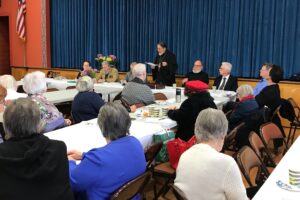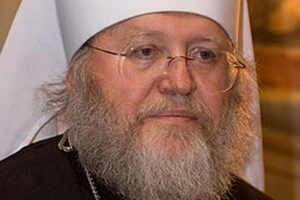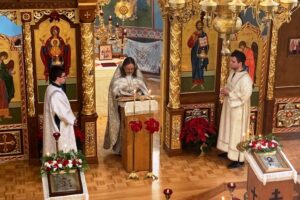All the actions of asceticism—fasting, vigils, etc., have the single purpose of cleansing and healing the heart. Sadly, we often give greater attention to what we are eating (or not eating) than the things that are eating at our hearts. St. Basil said, “It does you no good to abstain from meat and to then devour your brother.” We are lulled into a form of complacency by our culture’s exaltation of “objective” knowledge. We fail to notice that, even in very mundane things, dark musings, such as anger and resentment, can affect our performance. Driving angry can be as distracting as texting. We are not compartmentalized beings with some objective monitor operating independently of the state of our heart. The healing of the heart can be a difficult work. Its wounds can be quite old and deep. Resentments can easily grow from mere insults into a worldview.
The handful of commandments given to us by Christ easily serves as a short guide to mending the heart. “You have heard that it was said, ‘You shall love your neighbor and hate your enemy.’ But I say to you, love your enemies, bless those who curse you, do good to those who hate you, and pray for those who spitefully use you and persecute you, that you may be sons of your Father in heaven; for He makes His sun rise on the evil and on the good, and sends rain on the just and on the unjust. For if you love those who love you, what reward have you? Do not even the tax collectors do the same? And if you greet your brethren only, what do you do more than others? Do not even the tax collectors do so? Therefore you shall be perfect, just as your Father in heaven is perfect.’” (Matt. 5:43–48).
This, I suspect, is the form of theosis that not many imagine. The love of enemies is not a moral matter—rather, it describes a state of being. It is nothing less than a crucified life. As Christ forgives His enemies from the Cross, He reveals the full depth of His divinity. Just as the Father makes His sun to rise on the evil and the good, so too Christ shines the light of His love on the whole of humanity (who “know not what they do” [Luke 23:34]). There is no union with the crucified Christ that is not also a union in such love. The same observation can be made regarding Christ’s teachings on generosity and kindness. In His person and in His teachings, we see revealed the very heart of God.
—Fr. Stephen Freeman
Father Stephen is an Archpriest and rector of St. Anne Orthodox Church (OCA), Oak Ridge, TN. His web page can be found at Glory2Godforallthings.com.




